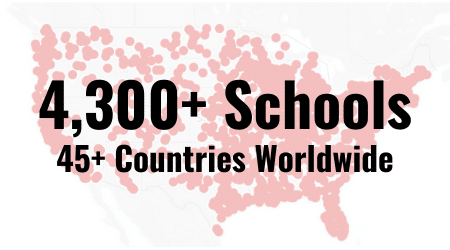Brain Biology = Hope for Reading Disabilities – Part I
Last weekend, I was visiting a ski area in northern Michigan for a few days and met Cori. She was working the front desk and checked me in as I arrived. We were chatting as the paperwork was processing and Cori asked what I do for a living. I told her about my work with study skills as I casually turned to grab something behind me. She replied with great interest and, while my back was momentarily turned, she explained, “My son is illiterate.”
“My Son Is Illiterate.”
I stopped dead in my tracks. In her four words, I could sense all of the worry and anxiety from which I am just emerging. I shared some of my stories in this newsletter last spring, explaining that my son was diagnosed with dyslexia, ADHD, and anxiety. From the point we determined we needed help, it took over a year to get the proper resources aligned.
We had many battles with various healthcare professionals and with his school that resulted in a bitter, bitter meeting with his principal. (See details here.)
We eventually found a doctor who would listen to us. We secured a formal diagnosis. We found a loving and compassionate principal at a new school who embraced us with open arms. We have new teachers who challenge our son and hold high expectations for him, yet support him along the way.
My son is doing better now than I ever dreamed just a few months ago! The weight that is slowly lifting off my shoulders is enormous! In fact, the ski retreat was a gift from my husband, encouraging me to take a break and “reset” after a very emotional year.
But, all of those feelings came rushing back to me in that split-second that I heard Cori’s wavering voice. I knew *exactly* what emotions were bubbling at the surface. It’s very fresh for me.
He Is NOT Illiterate!
But, first and foremost, I was stunned to hear the word “illiterate.” I don’t know if this is what she was told OR if this is how she has been led to feel after several years of fighting for her son. Either way, it is a crime. I knew nothing else about him, but I whirled around and adamantly said, “No, he’s not! He is NOT illiterate!”
She must have been thinking, “How do you know?”
I just know.
If he was mentally handicapped to the point that he was truly illiterate, she would not have chosen that word to describe his challenges. Instead, she would have been more concerned about his ability to feed or dress himself.
Learning Disability of Instructional Deficiency?
If a child is struggling with reading, he is simply not receiving instruction that matches the unique gifts of his particular brain. I say this with empathy for everyone involved here: his teachers, his principal, his parents, and of course, for the child.
The problem is that traditional reading training is significantly incomplete. There are only a couple of pieces that are missing, but those pieces are core to everything.
So, his poor teachers are scratching their head because they have a degree and a teaching certificate that says they should know how to solve this problem. But, they don’t. And, they are very, very frustrated because they care…a lot! If they didn’t, they would not have chosen this vocation.
I know because I have been in this position as a teacher before. I didn’t know what I didn’t know!
The parents, however, are looking to the teachers for guidance. They also assume that the degree and certificate mean that IF there was an answer, then surely the teachers would know it.
The child assumes the same thing. In a child’s world, adults have ALL of the answers. So, if there really was an answer to help him out, someone would have surely presented it by now.
The Solution Is Hiding in Plain Sight
Over the summer, I wrote a series called “The Cue to Reading.” I described that the brain uses three main cueing systems to help us read and comprehend information. These cueing systems are the foundation of proper reading instruction for ALL students. They are NOT a locked secret. In fact, when I searched for “three cueing systems for reading,” Google found 2.3 million results. However, the cueing systems are largely ignored or misunderstood.
I am not going to rehash them here, but I invite you to learn more about them, beginning with Article 1 of the Cue to Reading.
The Final, Critical Element
Meanwhile, I have since determined something else that is even *more* for Cori’s son to know. In fact, it is critically important!
Her son needs to know that is he is very smart. He needs to understand that I am not just saying this to throw false encouragement his way. He must have genuine confidence in his ability!
His entire future rests on his self-confidence. If the seemingly “eternal” struggles in school lead him to believe that he is not smart, his future is bleak. At best, he can expect to have a mildly fulfilling job where he will struggle to support a family. At worst, he could quickly become frustrated, start hanging with a bad crowd, and someday find himself in jail. According to the National Assessment of Adult Literacy (2003), 85% of all people in the juvenile court system are 65% of incarcerated adults are functionally illiterate. There is a very high correlation between literacy and quality of life!
How Do You Convince a Kid That He Is Smart?
He must understand how his brain works. He needs to know that his entire brain is not deficient. The brain has several different processing centers and the problem he is experiencing is isolated to one or two of these.
ALL of us have “deficiencies” in a few areas of our brain. Unfortunately, when those challenges originate in the areas of the brain that manage reading, the “deficiency” seems larger-than-life because reading is the foundation of school and life.
The good news is, those areas of the brain can grow and develop…with the proper exercises. In addition, the stronger parts of the brain will literally grow neuron connections around the weaker parts of the brain…with the proper exercises.
Help for Cori’s Son
I did learn more about this young man and have several suggestions for helping him develop confidence and learn to read. I will share this information next week in Part II of Brain Biology = Hope for Reading Disabilities.
For additional reference, see:
Brain Biology = Hope for Reading Disabilities – Part II
The Brain Biology of Learning Disabilities
-Susan Kruger
EB012417
Six Steps to
Conquer the Chaos
Get Our Free Guide & Information on...

"*" indicates required fields
SOAR® in the News
The SOAR® Curriculum
The most critical learning, organizing, and communication skills needed for school. Learn more here.
Who’s Using SOAR®?
SOAR® Guarantee
Click here to learn more.




